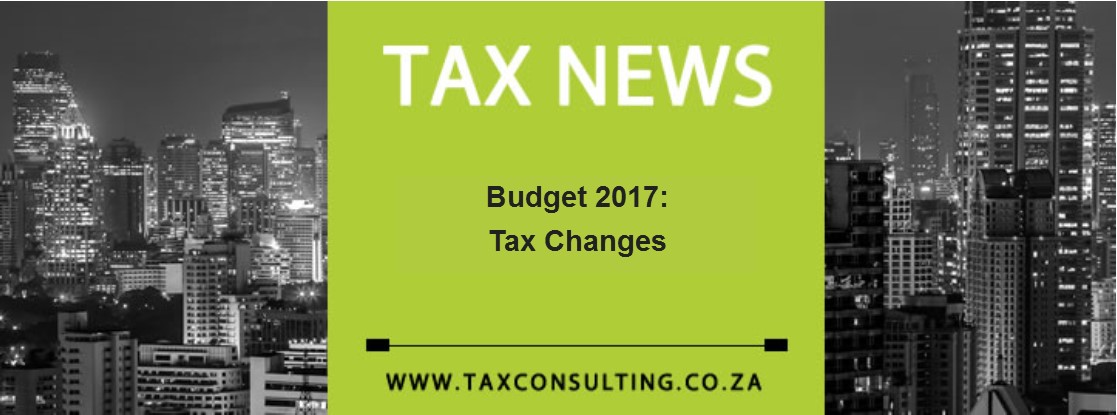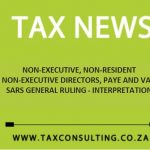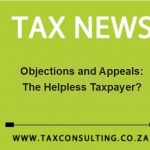Budget 2017: Tax Changes
BUDGET 2017: TAX CHANGES
The 2017 budget lived up to the expectation created by the Finance Minister with the medium term budget policy statement late last year in which it was made clear that R28bn in additional tax revenue must be generated.
Tax increases were announced as follows:
- Introduction of top marginal tax rate of 45% on personal taxable income above R1 500 000;
- Increase in tax rate applicable to trusts (excluding special trusts) from 41% to 45%;
- In consequence of increased top marginal rate for individuals, effective CGT rate for natural persons increased from 16.4% to 18% and in the case of trusts other than special trusts from 32.8% to 36%. The effective CGT rate applicable to companies remains the same at 22.4%;
- Increase in dividends tax rate from 15% to 20%. Effective corporate tax rate is 42.4% from 1 March 2017. Foreign dividends that don’t qualify for exemption will also now have an effective tax rate of 20%; and
- Withholding tax on non-residents disposing of immovable property is increased from 5% to 7.5% for foreign individuals, from 7.5% to 10% for foreign companies and from 10% to 15% for foreign trusts.
SARS’ tax pocket guide, which you can access here, contains a summary of the latest rates for the upcoming fiscal year.
Other tax changes proposed in the budget include:
- Expanding the VAT base to include VAT on fuel. This is in addition to the fuel levy;
- The section 10(1)(o)(ii) 183/60 day exemption for employment income to be amended to allow the exemption only where the employment income is taxed in the foreign country;
- The definition of ‘resident’ to be amended for VAT purposes to address issues with VAT becoming a cost to certain non-resident companies effectively managed and controlled in South Africa;
- The VAT zero rating associated with international travel is expected to be changed;
- Currently VAT is imposed in South Africa upon the supply of certain electronic services and that cloud computing and services provided for by online applications also be subject to VAT;
- Services supplied relating to securities or shares in a foreign incorporated company listed on the JSE should be subject to zero-rated VAT and accordingly changes to the VAT Act should occur to clarify the tax treatment of these services;
- The section 7C amendment to prevent the use of low or non-interest bearing loans to trusts for the transfer of wealth is to include such loans as given to companies owed by a trust. Furthermore the provision will be extended to exclude trusts not used for estate planning and employee share trusts;
- Income Tax Act to allow individuals to elect to retire, and the date on which the lump sum benefit accrued to the individual depended on the date on which the individual elected to retire and not on the normal retirement age. Currently, once the individual elects to retire, the Income Tax Act does not cater for the transfer of lump sum benefits from one retirement fund to another. It is proposed that transfers of retirement interests be allowed from a retirement fund to a retirement annuity fund, subject to fund rules;
- The eligibility threshold for employer provided bursaries and scholarships is to increase from R400 000 per annum to R600 000. The monetary limits are proposed to increase from R15 000 to R20 000 for NQF7 and below and from R40 000 to R60 000 for NQF 7 and above;
- Paragraph 12A of the Eighth Schedule (applicable on reduction of debt) does not currently apply to mining companies. This disparity will be addressed;
- The relief provided in paragraph 12A for dormant group companies or companies under business rescue should be extended to section 19;
- The practice of settling debt by a means other than cash, such as the conversion of debt into equity, is to be allowed. Provision will be made to recoup capitalised interest where an interest deduction was previously claimed;
- Specific countermeasures will be introduced to address share sales disguised as share buy backs;
- Short term shareholding structures aimed at circumventing debt reduction provisions are to be addressed;
- With a REIT’s assets not qualifying as allowance assets in a reorganisation transaction, the legislation will be amended to provide for reorganisation transactions involving REITs;
- Currently the qualifying purpose exemptions for third-party backed shares are too narrow. Provisions are to be further refined to cover all qualifying purposes;
- Refinements to the venture capital company regime, more specifically to investment returns and the qualifying company test;
- Large multinational companies will be required to submit country by country transfer pricing policies to SARS from 31 November 2017;
- Amendments to the Tax Administration Act to curtail inconsistencies arising out of the transitional rules for the calculation of interest on tax debts;
- Only the portion of travel expenses reimbursed by the employer exceeding the fixed distance or rate as determined, is to be regarded as remuneration for the purposes of determining employee’s tax;
- The annual cap of R350 000 on contributions to pension, provident and retirement annuity funds be spread over the tax year for determining monthly employee’s tax;
- Clarification will be made that the chairperson of the Tax Board has the final decision as to whether or not an accountant or commercial member must form part of the constitution of the Tax Board; and
- All decisions by SARS not subject to objection and appeal are to be subject to the remedies under section 9 of the Tax Administration Act.
These and other proposed tax amendments will be discussed in more detail by Jerry Botha at the SAIT Budget and Tax Update and the SARA Annual Tax Update respectively. For more details, see the links below.
http://www.sara.co.za/Events/EventsCalendar.aspx
http://www.thesait.org.za/events/event_list.asp
![2025-logo-[Recovered] Tax Consulting South Africa](https://www.taxconsulting.co.za/wp-content/uploads/2025/01/2025-logo-Recovered.png)


